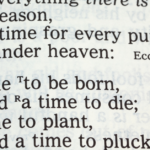The first time I attended a Christian wellness retreat, I was skeptical. As a lifelong Christian, I’d always believed in the power of prayer and faith, but combining spiritual practices with modern wellness concepts seemed unusual.
I was in for a surprise!
From the moment I arrived at the serene lakeside retreat center, peace washed over me. The crisp air, beautiful surroundings, and atmosphere of love and acceptance were palpable.
Over the next few days, I experienced a transformation that impacted not just my spiritual life, but my physical and mental well-being as well.
Christian wellness retreats blend faith-based practices with holistic health approaches. They offer a sanctuary for those seeking to deepen their relationship with God while caring for their bodies and minds.
The Foundation of Christian Wellness
Christian wellness retreats are built on the belief that our bodies are temples of the Holy Spirit, as stated in 1 Corinthians 6:19-20. This perspective shifts the focus from mere self-improvement to honoring God through the care of our whole being – body, mind, and spirit.
These retreats typically incorporate:
- Biblical teachings and devotionals
- Prayer and meditation sessions
- Physical activities like hiking or yoga
- Nutritious, often plant-based meals
- Workshops on stress management and emotional healing
- Community building activities
The goal is to create a holistic experience that nourishes every aspect of your being while deepening your faith.
The Mind-Body-Spirit Connection
One of the most powerful aspects of Christian wellness retreats is their emphasis on the interconnectedness of our physical, mental, and spiritual health. This concept is rooted in ancient Christian practices.
Desert fathers and mothers in the 3rd and 4th centuries understood the importance of solitude, fasting, and physical labor in their spiritual journeys. Modern retreats build on this wisdom, incorporating contemporary health knowledge with timeless spiritual truths.
A typical day at a retreat might start with a sunrise prayer walk, followed by a nutritious breakfast and a Bible study on the importance of self-care. The afternoon could include a workshop on stress management techniques rooted in scripture, followed by a guided nature hike.
The evening might close with a worship session and a meditation on gratitude.
This integrated approach helps participants see how their physical health impacts their spiritual life, and vice versa. Many attendees experience breakthroughs in long-standing health issues or emotional struggles as they engage in this holistic healing process.
Overcoming Challenges and Misconceptions
Despite their growing popularity, Christian wellness retreats still face challenges and misconceptions within the broader Christian community. Some common concerns include:
- Fear of New Age influences
- Concerns about the integration of practices like yoga or meditation
- Skepticism about the effectiveness of holistic approaches
- Worries about neglecting traditional spiritual disciplines
These are valid concerns, and it’s important for retreat organizers to address them directly. Most reputable Christian wellness retreats are careful to ground all their practices in scripture and traditional Christian teachings.
They often provide educational resources to help participants understand the biblical basis for their approach to wellness. For example, Christian yoga classes typically replace traditional Hindu mantras with scripture verses or Christian affirmations.
Meditation sessions focus on contemplating God’s word as opposed to emptying the mind.
Implementing Retreat Practices in Daily Life
One of the biggest challenges participants face is maintaining the positive changes they experience during the retreat once they return to their everyday lives. Here are some strategies to help integrate retreat practices into your daily routine:
Start Small
Begin with just 5-10 minutes of prayer or meditation each day. This small commitment can make a big difference over time.
You might choose a specific time, like first thing in the morning or during your lunch break, to confirm consistency.
Create a Sacred Space
Designate a corner of your home for quiet reflection and prayer. This doesn’t need to be elaborate – a comfortable chair, a small table with a candle or Bible, and perhaps a meaningful piece of art can create a peaceful atmosphere conducive to spiritual practice.
Find an Accountability Partner
Connect with someone from the retreat to check in regularly. This could be a weekly phone call or text message to share your progress, challenges, and prayer requests.
Having someone to share your path with can provide motivation and support.
Join a Local Wellness Group
Look for faith-based fitness classes or nutrition support groups in your area. Many churches now offer these types of programs, recognizing the importance of holistic health for their congregations.
If you can’t find one, consider starting one yourself!
Practice Mindful Eating
Say a prayer of gratitude before meals and eat slowly, savoring each bite. This practice enhances your spiritual connection but can also improve digestion and help with portion control.
Consider incorporating some of the nutritious recipes you learned at the retreat into your regular meal rotation.
Incorporate Movement
Take short walks during your lunch break or try a Christian yoga video at home. Movement doesn’t have to be intense to be useful – even gentle stretching or a leisurely stroll can help clear your mind and connect you with God’s creation.
Prioritize Rest
Honor the Sabbath by setting aside one day a week for rest and spiritual renewal. This might mean unplugging from technology, spending time in nature, or engaging in activities that bring you joy and peace.
Remember, rest is a biblical principle and an essential part of wellness.
Remember, the goal isn’t perfection, but progress. Be patient with yourself as you work to integrate these new habits into your life.
It’s okay to have setbacks – what matters is that you keep trying and stay committed to your wellness journey.
The Future of Christian Wellness
As more Christians recognize the importance of holistic health, we’re likely to see continued growth in the field of Christian wellness. Some emerging trends include:
Integration of Technology
Virtual reality prayer experiences and faith-based fitness apps are becoming more common. Imagine putting on a VR headset and finding yourself in a serene garden for guided meditation on scripture, or using an app that combines daily devotionals with workout routines.
Focus on Mental Health
There’s an increased emphasis on addressing anxiety, depression, and trauma from a Christian perspective. Many retreats now offer sessions led by Christian counselors or therapists, helping participants understand how their faith can be a resource for mental health.
Environmental Stewardship
Retreats are incorporating care for creation as part of overall wellness. This might include nature conservation activities, workshops on sustainable living, or discussions on the theological basis for environmental care.
Personalized Wellness Plans
Tailored programs based on individual health needs and spiritual gifts are becoming more common. Some retreats now offer pre-retreat assessments to help create a personalized experience for each participant.
Community-Based Initiatives
Local churches are offering ongoing wellness programs inspired by retreat models. This might include weekly wellness classes, seasonal mini-retreats, or small groups focused on holistic health.
These developments promise to make Christian wellness practices more accessible and integrated into everyday life.
Practical Exercises to Try
Here are a few exercises you can try at home to get a taste of what you might experience at a Christian wellness retreat:
Breath Prayer
Choose a short phrase from scripture. Inhale on the first part, exhale on the second.
For example, inhale “Be still,” exhale “and know that I am God” (Psalm 46:10).
Practice this for 5-10 minutes, allowing your breath and the words to center you in God’s presence.
Gratitude Walk
Take a 10-minute walk, silently thanking God for everything you see, hear, or feel. This practice combines physical activity with spiritual reflection, helping you cultivate a heart of gratitude.
You might be surprised at how many blessings you notice when you’re intentionally looking for them.
Scripture Meditation
Choose a verse to focus on. Read it slowly several times, pausing to reflect on each word.
Ask God to reveal new insights.
This practice, sometimes called Lectio Divina, can help you engage with scripture in a deeper, more personal way.
Holy Yoga
Try a beginner’s Christian yoga video, focusing on worship and prayer as you move through the poses. Many Christian yoga instructors offer free videos online.
Remember, the goal is to use your body as a form of worship and prayer, not to achieve perfect poses.
Fasting and Prayer
Choose one meal to skip, using that time for focused prayer instead. This ancient Christian practice can help sharpen your spiritual focus and remind you of your dependence on God.
If you have any health concerns, talk to your doctor before fasting.
Remember, the goal of these exercises is to draw closer to God while caring for your whole self. Be open to what God might reveal to you through these practices.
The Impact of Christian Wellness Retreats
The effects of attending a Christian wellness retreat can be profound and long-lasting. Many participants report experiencing:
Spiritual Renewal
A deepened connection with God and a renewed sense of purpose in their faith journey. The focused time away from daily distractions allows for meaningful spiritual reflection and growth.
Physical Rejuvenation
Improved energy levels, better sleep, and motivation to maintain healthier habits. The combination of nutritious food, physical activity, and rest can jumpstart positive changes in physical health.
Emotional Healing
Resolution of long-standing emotional issues or a new perspective on challenging situations. The supportive environment and focus on holistic health often create space for emotional breakthroughs.
Community Connection
Formation of new friendships and a sense of belonging within a like-minded community. Many participants stay in touch long after the retreat, providing ongoing support and encouragement.
Lifestyle Changes
Adoption of new habits that support overall wellness, such as regular prayer times, healthier eating patterns, or increased physical activity. The retreat experience often serves as a catalyst for positive life changes.
Increased Self-Awareness
A better understanding of personal strengths, weaknesses, and areas for growth. The reflective nature of many retreat activities can lead to valuable self-insights.
Stress Reduction
Decreased anxiety and a greater sense of peace in daily life. Learning stress management techniques rooted in faith can provide powerful tools for adapting to life’s challenges.
While the immediate effects of a retreat can be powerful, the real value often comes from how these experiences translate into everyday life. Many participants find that the retreat serves as a turning point, inspiring them to prioritize their spiritual, physical, and emotional health in new ways.
Choosing the Right Christian Wellness Retreat
With the growing popularity of Christian wellness retreats, it’s important to choose one that aligns with your needs and values. Here are some factors to consider:
Doctrinal Alignment
Ensure the retreat’s teachings align with your personal beliefs and denominational background. While some variation can be enriching, you’ll want to feel comfortable with the overall theological approach.
Program Focus
Look for a retreat that addresses your specific wellness goals. Some may focus more on physical health, while others emphasize emotional healing or spiritual growth.
The best choice will depend on your personal needs and interests.
Location and Setting
Consider whether you prefer a rustic, nature-focused experience or more comfortable accommodations. The setting can significantly impact your retreat experience.
Duration and Timing
Retreats can range from a weekend to several weeks. Choose a length that fits your schedule and the depth of experience you’re seeking.
Cost and Value
Compare the cost with the offerings to confirm you’re getting good value. Remember to factor in accommodations, meals, and any materials or resources provided.
Instructor Qualifications
Look into the backgrounds of the retreat leaders. They should have suitable qualifications in both spiritual leadership and wellness practices.
Participant Reviews
Read testimonials or speak with past participants if possible. Their experiences can give you valuable insights into what to expect.
Wellness Approach
Ensure you’re comfortable with the types of wellness practices offered. If you have concerns about specific activities, reach out to the organizers for clarification.
Group Size
Consider whether you prefer a more intimate retreat experience or a larger group setting. This can affect the level of personal attention and community dynamics.
Post-Retreat Support
Look for retreats that offer follow-up resources or support to help you maintain your progress after returning home.
Taking the time to research and choose the right retreat can greatly enhance your experience and the long-term benefits you receive.
Frequently Asked Questions
What is a Christian wellness retreat?
A Christian wellness retreat is a structured getaway that combines spiritual practices with holistic health approaches. These retreats aim to nourish the body, mind, and spirit through activities like prayer, Bible study, physical exercise, healthy eating, and stress management workshops.
How long do Christian wellness retreats typically last?
Christian wellness retreats can vary in length, ranging from a weekend to several weeks. Many popular options last 3-5 days, providing enough time for meaningful experiences without requiring an extended absence from daily responsibilities.
Are Christian wellness retreats only for people with health issues?
No, Christian wellness retreats are for anyone seeking to improve their overall well-being and deepen their faith. While they can be useful for people who have specific health concerns, they’re equally valuable for people looking for spiritual renewal, stress relief, or a holistic approach to self-care.
How much do Christian wellness retreats cost?
The cost of Christian wellness retreats can vary widely depending on factors like duration, location, accommodations, and program offerings. Prices might range from a few hundred dollars for a weekend retreat to several thousand for longer, more comprehensive programs.
Some retreats offer scholarships or sliding scale fees to make them more accessible.
Can I attend a Christian wellness retreat if I’m new to Christianity?
Absolutely! Many Christian wellness retreats welcome people at all stages of their faith journey, including those who are new to Christianity or simply curious about a faith-based approach to wellness.
It’s always a good idea to check with the retreat organizers about their specific focus and whether they cater to newcomers.
What should I pack for a Christian wellness retreat?
Common items to pack include comfortable clothing for physical activities, a Bible, a journal, any personal devotional materials, and suitable attire for worship services. Depending on the retreat’s location and activities, you might also need items like hiking shoes, a swimsuit, or yoga mat.
The retreat organizers should provide a detailed packing list.
Are Christian wellness retreats only for women?
While some Christian wellness retreats are specifically designed for women, many are open to all genders. There are also retreats tailored for men, couples, or families.
When researching retreats, look for information about the target audience to find one that suits you.
How do Christian wellness retreats differ from secular wellness retreats?
The primary difference is the integration of Christian faith and teachings into all aspects of the retreat. While both may offer similar wellness activities, Christian retreats frame these practices within a biblical context and include spiritual elements like prayer, worship, and Bible study.
Can I maintain the benefits of a Christian wellness retreat after I return home?
Yes, many retreats provide resources and strategies for continuing your wellness journey at home. This might include daily devotional guides, exercise plans, or nutrition advice.
Some retreats also offer follow-up support through online communities or local group meetings.
Are there virtual options for Christian wellness retreats?
Yes, especially since the COVID-19 pandemic, many organizations have begun offering virtual Christian wellness retreats. These online experiences typically include live-streamed sessions, interactive workshops, and resources for at-home practices.
Key Takeaways
- Christian wellness retreats offer a unique blend of spiritual growth and holistic health practices.
- The mind-body-spirit connection is central to the Christian wellness approach.
- Retreats can help address physical, emotional, and spiritual issues in an integrated way.
- Continuing retreat practices at home is crucial for lasting change.
- The field of Christian wellness is evolving, with new trends emerging to meet contemporary needs.




